The Quintessential Ramaḍān
In the complex voyage that is life, people are often lost in trivialities. The constant commotion of tasks and thoughts becomes a great distraction in itself, but in addition, there are constant requirements of the human body, food, water and sexual desires which keep one engaged. To such an extent that they do not get enough, or -any- for that matter, time to think or even reflect on the primary meanings of life. Avenues of the intellect are clogged, and the inner voice clammed, resulting in what is visible today, men and women devoid of any spiritual sense, let alone experience.
Elongated periods of detachment from the spiritual come at the expense of happiness, self-love and sometimes faith. Many young people today are abandoning their culture, religion and legacies in pursuit of the postmodern zeitgeist. Be that as it may, it is essential to note that such a phenomenon affects the individual, but its repercussions can be felt in more splendid environs. Today, we have a whole ecological crisis on our hands as a result of the disjuncture of the spiritual Divine and the profane nature, as many have sadly deemed it.
In such circumstances, some might still find their way back to the origin, which seldom happens, but it is more probable that they require a certain ‘push’ to do the same. This spur must enable one to focus on the permanent and take one’s eyes off the transient. Pertaining to our discourse, this push is the onset of Ramaḍān. The prime cause why fasting was made obligatory upon the believers as mentioned in the Holy Qur’an [1] is:
“O People who Believe! Fasting is made compulsory for you, like it was ordained for those before you, so that you may attain piety” [2:183]
The result of fasting is the attainment of piety. But, one can readily ask, what is meant by piety? Lexically, it is a God-fearing trait of a believer. But if we look closely, the main aim of fasting is to remind man of being his true self. This self, of course, is not of a creature fallen from grace, nor is it the self that is intrinsically divided into having an empirical worth in which one is a superior or inferior being to another. Instead, according to the tradition at hand, man’s self is the Ḳhalīfah or vicegerent of the Almighty. One who is conscious of their being, the microcosm, as well as the world around, the macrocosm and ultimately of the Absolute Reality.
As a prerequisite of consciousness, this vicegerency calls for man to give complete attention to the superior meanings of life. With all these preexisting distractions, food, water, and sexual desires, this is naturally difficult, weighing heavy on the conscious. Hence, we see the fundamental commandments of fasting in Ramaḍān prohibiting these basal desires to provide man with spiritual seclusion wherein he can meditate on returning to his true self. Taking one’s mind off the primal inclinations enables one to focus on what’s permanently etched on his existence rather than chasing the temporal world.
The Prophet of Islam (peace and blessings be upon him) is attributed to have said, “Fast and you will be healhty”[2] as narrated by Ṭabrāni, a piece of advice containing allusions to the correlation of health with fasting, the first that only a healthy person can fast, the sick are exempted to make up for the lost fasts on recovery, and second that fasting makes a person healthy. This Ḥadith is not limited to one level of meaning, rather penetrating many realms of nuances. It points towards spiritual health as well. If we look at the first part now, only a spiritually sound person can observe the fast in its complete sense.
The Prophet (peace be upon him) said in another narration about the total spectrum of fasting: “Whoever does not give up evil and ignorant speech, and acting in accordance with that, Allah has no need of his giving up of food and drink.”[3] which clearly states that fasting is not just staying hungry or thirsty but covers a broader meaning of abstaining from all that is corrupt. Hence, the first part is realized again as only a spiritually healthy person can observe the complete fast, one which fulfils all the requisites of “doing good and abstaining from evil” - a motto of this Ummah - and leads to greater openings of the conscience.
The second part of the Ḥadith repeats the same fact in a beautifully nuanced way. Of course, not all people have the calibre to realize the spiritual fast, but one must not lose hope, as it has been promised that if one keeps fasting, to whatever extent they can - other than not eating, drinking, and sexual pleasure - One will, in turn, continue to gain spiritual ascent. Thus, it is not wrong to conclude that man fasts and gains health - in its complete sense - which improves the quality of his fasting, which further contributes to his health, and the cycle goes on, for there is no limit to the spiritual ascent one can achieve.
Another beautiful allusion found in the Hadith narrations is about the opening of the gates of Paradise: “When the month of Ramaḍā nstarts, the gates of Paradise are opened and the gates of Hell are closed and the devils are chained.” [4] A Divine help for the believer in Ramaḍān, that his path is made easier by closing the mouths of all pitfalls and chaining the enemies which misguide him so that he may - at whatever level of faith he is - at least commence his journey of the ascent towards the Divine. Furthermore, it is easier for man to return to his Paradisiacal abode, the primordial home he came, by informing him that its gates are opened. That a place as fragrant as the Paradise, whose smell can be felt from forty years of travelling [5], will emit what degrees of Divine fragrances once unlocked. Since Paradise is not of this realm but from the unseen world, ‘Ālam al-Gḥaib’ fragrance cannot be fully experienced by worldly receptors. Still, only a tiny fraction of its aroma is available to the sanctified heart, which can access the unseen world.
Through fasting, the conscious man - befitting of the vicegerency of the Almighty - detaches himself from the transient to such an extent that he is not bothered by the trivialities of the transitory world. Such a man stays ‘in the world’ but not as ‘of the world’. He is a stranger to the world and the world to him. Akin to a traveller in an unknown town, he neither gets attached to his transit nor does he deem it his destination. Still, he is clear of the goal, much like a fasting person, who knows that he is forbidden to indulge in worldly desires and must focus on his ultimate objective. The Prophet of Islam (peace be upon him) gave a priceless prescription in this regard as he said: “When any one of you gets up in the morning in the state of fasting, he should neither use obscene language nor do any act of ignorance. And if anyone slanders him or quarrels with him, he should say: “I am fasting, I am fasting.” [6] A potent reminder to oneself and the trivial world, words cannot begin to express, and minds cannot fathom the amount of wisdom in these sentences. For a conscious man, when an entity from the mundane world interacts with him or indulges him, He must remind himself that this is not his goal. He is not to entertain the temporary but to focus on the permanent. A piece of advice from none other than the One who observed perpetual fasts called ‘Ṣiyām al-Wisāl’ [7], continued fasts without eating or drinking, even though he restricted the believers to observe these physically - as our bodies wouldn’t be able to - but that does not change the fact that every action of the Prophet carries a significant amount of wisdom. Hence, one can easily derive that physically prohibited perpetual fasting can be observed spiritually where the body remains unharmed.
Therefore, we return to the conscious man, one whose life is an elongation of the perpetual fasting and ultimately of perpetual health. The man who disconnects from the mundane illusions of the world to regain his connectedness to the Divine, one who gives up the limited in pursuit of the Infinite, one who stops accepting ready-made realities of the world in his quest for the Ultimate Reality and whose sole purpose is to be in the Divine Presence (Huḍhoor) and to be there perpetually (Dāyiman). Ramaḍān is a gateway for all people - regardless of their devotion levels- to access his realm wherein the travelers are countable and a select bunch. A fair chance for all to have spiritual realizations and Divine openings and an opportunity to actualize the rightful station, vicegerency of the Divine Lord.
The fascinating cycle of fasting and health, which is: fasting to gain health and being healthy to fast, manifests in another beautiful way in the divisions of Ramaḍān into three sets of ten days, each called the ‘Ạshrah. In the first ten days, called ‘Ạshrah al-Raḥmah’, the ten days of mercy, a man needs a Divine intervention to commence on the blessed path often called the ‘Tawfeeq’ of the Almighty. The first Ạshrah where he receives help from Divine mercy to set foot into the path of the Divine. The next is the ten days of forgiveness ‘Ạshrah al Magḥfirah’, intermediate station, where he needs his sins - which weigh heavily on his conscience and keep him from advancing - to be forgiven and hence supplicates abundantly for forgiveness in these days. Finally, the last ten days are deemed the ‘Ạshrah al-Najāh’ or the ten days of freedom, when his cycle of fasting and health reaches a significant juncture, and he becomes free from his worldly desires well as the vices which lead to Hellfire.
Thus, we must understand the depth and levels of meaning the month of Ramaḍān carries with it to gain an understanding of the deeper meanings of fasting and to see with our own eyes what a Quintessential Ramaḍān looks like. The Divinity of this holy month is far from being expressed in words, but we will leave the readers with one of the immensely profound glad tidings of Ramaḍān here, the Almighty Allah says: “Every deed of the son of Adam is for him except fasting; it is for Me and I shall reward for it…” [8]
May Allah bless us all!
References and Citations:
[1] The Holy Qur’an; Surah Al- Baqarah 2; Verse 183. Translation: Kanzuliman English rendered by Āqib Farīd Al-Qadirī.
[2] al-Tabrani; Abul Qasim Suleyman; Mu’jam al-Awsat; DKI Beirut 2012.
[3] al-Quzveni; Ibn Mājah; Muḥammad bin Yazīd; Imām; Sunan Ibn Mājah; Ḥadīth: 1689.
[4] al-Buḳhārī; Muḥammad bin Ismāị̄l; Saḥiḥ al-Buḳhārī; Ḥadīth: 1899.
[5] al-Buḳhārī; Muḥammad bin Ismāị̄l; Saḥiḥ al-Buḳhārī; Ḥadīth: 6194.
[6] al-Qushayri; Muslim bin Ḥallāj; Imām; Saḥiḥ al-Muslim; Ḥadīth 1151.
[7] al-Buḳhārī; Muḥammad bin Ismāị̄l; Saḥiḥ al-Buḳhārī; Ḥadīth: 1961.
[8] al-Buḳhārī; Muḥammad bin Ismāị̄l; Saḥiḥ al-Buḳhārī; Ḥadīth: 5927.
(Fardeen Ahmad Khan Razvi is an Oriental Author with over a hundred articles and some two dozen booklets on Islam and Oriental subjects to his credit, Written in Arabic, English, Urdu and Hindi languages. His minor is in Computer Applications pursuing his Major in Data Science. The author is also an eloquent Urdu poet coming from a Sufi background in Northern India)
Disclaimer
The views expressed in this article are the author’s own and do not necessarily mirror Islamonweb’s editorial stance.

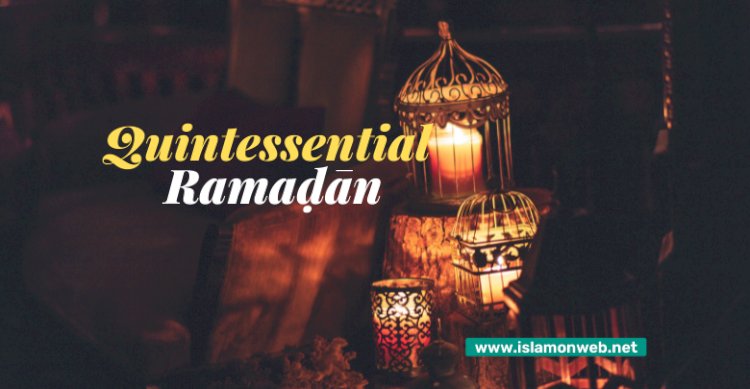


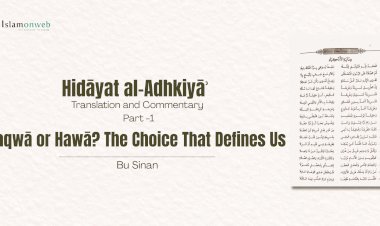

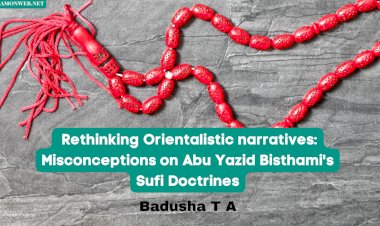
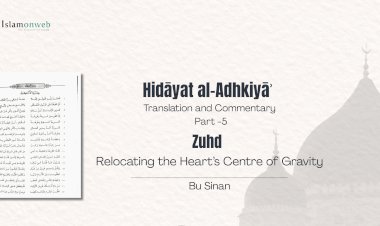
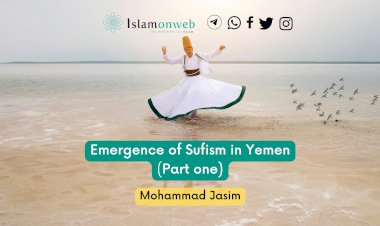
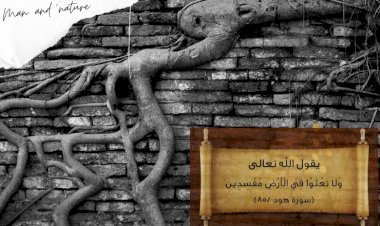














Leave A Comment